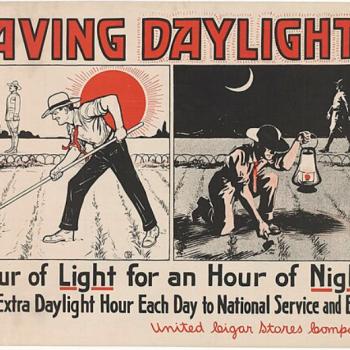For those who think there is something inherently wrong with Islam, or with specific Muslim cultures around the world, one only need look at the varied Muslim diasporas within the U.S. that are reaching their full potential economically, culturally, spiritually, and politically. It's not Islam that is the problem; it's the conditions within which Muslim communities find themselves.
So let's contrast the American Muslim reality with the one on the ground in Muslim communities around the world. Wherever you go, you see one or more challenges that American Muslims couldn't fathom for themselves — whether it is the grinding marginalization of Muslim communities in Europe, the sectarian divides driving apart Muslim communities, or the outright disintegration of communities from Syria to the Central African Republic to Burma. American Muslims have benefitted from being under the political and cultural American umbrella, and have taken advantage of that opportunity to show the world what the true potential of the faith is.
What does this mean for the next few generations of American Muslims? If you put aside for now the increasing online hostility toward Muslims (which, I conclude after having followed it closely since its inception, is at or near its peak), the trajectory of the American Muslim experiment continues to bound upward on all fronts. The post-9/11 generation of American Muslims isn't taking their identity for granted and is vigorously representing themselves in legal and media institutions. They are both unapologetic about their identity and eager to build bridges with others. They are no longer tolerating being spoken about anthropologically, as if they are subjects to be studied and not engaged with, and are telling their own stories in both news and cultural fora. They are increasingly running for elective office, not to bring Islam into the public sphere, as some critics allege, but to show the world that Muslims in public office can benefit society as a whole. And their fellow citizens are responding in kind, giving Muslims the latitude to represent themselves and integrate in ways that are uniquely American.
Not only do I believe that the American Muslim experiment is continuing to succeed in ways we could not have imagined only a decade ago, but I am increasingly unapologetic about telling my co-religionists around the world that there is something in our model that can be of use to them in figuring out solutions to their problems. Embrace the American Muslim approach to Islam: be continually inquisitive about Islamic scholarship; strive to be inclusive of all kinds of Muslims; build intra-faith respect and interaction between schools of thought; reject tribal affiliations in favor of a value-based identity; break down barriers between race and national origin; and most importantly, work to make Muslim life and actions relevant to their neighbors.
As Muslims, we are told that the Prophet Muhammad was sent as a mercy to creation (21:107), and that we should emulate him as our most beautiful role model (33:21). If we do not reinforce these passages with our actions, we'll never be doing our religious duty. But I am confident that the coming generation of American Muslims will be the one that turns the tide of perception among other Americans, because their actions will make their neighbors feel like their lives are enriched by having Muslims live beside them.




